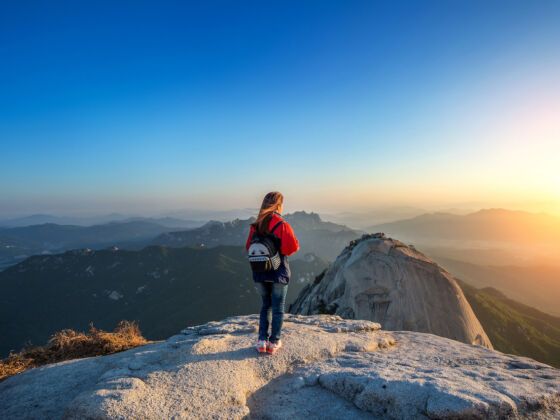Now that I’ve been in Korea for a while, I’ve come to understand that hiking here is like raving, only better.
Koreans are the most stylish hikers on the planet. Forget high-fashion: K-hikers rock high-altitude style. Back in the mid-nineties in the U.S., we called them techno preppies or gangster ravers: high-performance sports gear, vests, plaid shirts, polar fleece, cargo pants, visors, backpacks (minus the pacifiers, glowsticks and sparkles). Instead of the Running Man, they do the Hiking Man for 8 hours straight and still look like they just came out of the shower.
